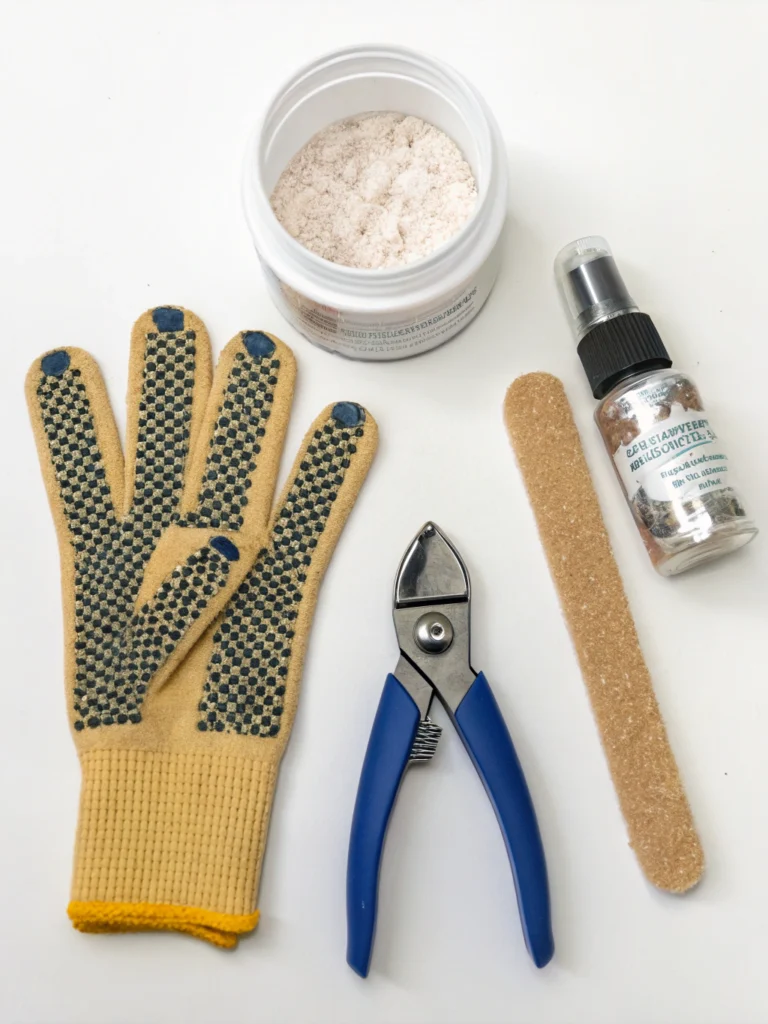Disclosure: This page may contain ads and affiliate links. We may earn a commission at no extra cost to you.
Views: 34
Disclosure: This page may contain ads and affiliate links. We may earn a commission at no extra cost to you.
New born kitten care into your home is an exciting yet delicate responsibility. Just like human babies, these tiny fur-balls require special attention and care during their early weeks of life to ensure they grow into healthy and happy cats. Let’s delve into the essential aspects of newborn kitten care, from their first moments to their gradual transition into independent cats.

Table of Contents
Understanding the Needs of New born Kitten Care
Newborn kittens are entirely dependent on their mother for survival. Born blind and deaf, they rely on their sense of touch and smell to navigate the world around them. During the first few weeks of life, they spend most of their time sleeping and nursing, as they require constant warmth and nourishment to thrive.
Preparing for the Arrival of Newborn Kittens
Before the kittens arrive, it’s crucial to prepare a safe and cozy space for them. Choose a quiet, secluded area away from household traffic where the mother cat can care for her litter without disturbance. Line the nesting area with soft blankets or towels for comfort, and ensure it’s free from drafts and potential hazards.
Gathering essential supplies ahead of time will make caring for the newborn kittens more manageable. Stock up on kitten formula, feeding bottles or syringes, a heating pad or heat lamp, a litter box, and grooming tools. Having these items on hand will help you provide immediate care to the kittens as soon as they arrive.
Feeding Newborn Kittens
The ideal source of nutrition for newborn kittens is their mother’s milk, which is rich in essential nutrients and antibodies crucial for their development. If, for any reason, the mother is unable to nurse her kittens, such as illness or rejection, you’ll need to step in as a surrogate feeder.
Importance of Mother’s Milk
Mother’s milk provides newborn kittens with antibodies that boost their immune system and protect them from infections. It’s also easily digestible, reducing the risk of gastrointestinal issues. Additionally, nursing promotes bonding between the kittens and their mother, fostering a sense of security and comfort.
Alternatives if the Mother is Unavailable
In cases where the mother is absent or unable to nurse, commercial kitten formula serves as the next best option. Choose a formula specifically designed for newborn kittens, and follow the manufacturer’s instructions for mixing and feeding. Use a small feeding bottle or syringe to mimic the natural suckling process, and feed the kittens every two to three hours around the clock.
Maintaining Hygiene
Keeping newborn kittens clean is essential for their health and well-being. While mother cats typically groom their kittens regularly, you may need to assist with bathing if the mother is absent or neglectful. Use a damp cloth or cotton ball to gently wipe away any dirt or debris, focusing on their face, ears, and genital area.
Bathing Newborn Kittens
Avoid immersing newborn kittens in water unless absolutely necessary, as they are susceptible to hypothermia. Instead, spot-clean any soiled areas using a mild kitten shampoo or plain warm water. Pat them dry with a soft towel and place them back in their nesting area to stay warm.
Keeping Their Living Area Clean
Regularly clean and sanitize the kittens’ living area to prevent the buildup of bacteria and odors. Replace soiled bedding with fresh linens, and scoop out the litter box daily. Use a pet-safe disinfectant to wipe down surfaces, ensuring a hygienic environment for the growing kittens.
Monitoring Health and Development
As newborn kittens grow, it’s essential to monitor their health and development closely. Keep an eye out for any signs of illness or distress, such as lethargy, loss of appetite, or unusual behavior. Weigh the kittens regularly to track their growth progress and consult a veterinarian if you notice any abnormalities.
Recognizing Signs of Illness
Newborn kittens are vulnerable to various health issues, including infections, parasites, and congenital defects. Be vigilant for symptoms such as diarrhea, vomiting, coughing, or difficulty breathing, which may indicate an underlying medical condition. Prompt veterinary care is crucial for ensuring the kittens receive appropriate treatment and support.
Tracking Growth Milestones
As the kittens grow, they will reach important developmental milestones, such as opening their eyes and ears, and taking their first wobbly steps. Celebrate these milestones as they occur and provide gentle encouragement and support as the kittens explore their surroundings.
Socialization and Bonding
Early socialization is key to raising well-adjusted and affectionate cats. Spend time interacting with the kittens daily, handling them gently and speaking to them in soothing tones. Encourage positive experiences by offering treats and rewards for good behavior, building trust and affection between you and the kittens.
Importance of Early Interaction
Exposing newborn kittens to different sights, sounds, and experiences from an early age helps them become confident and adaptable cats. Introduce them to household members, including other pets, gradually and supervise their interactions to ensure everyone gets along harmoniously.
Building Trust and Affection
Establishing a strong bond with the kittens is essential for their emotional well-being. Show them love and affection through cuddling, petting, and playing, reinforcing positive associations with human interaction. As they grow older, continue to nurture this bond through regular quality time together.
Introducing Solid Food
Around the age of four weeks, kittens begin to show interest in solid food and can start the transition from milk to a more substantial diet. Introducing solid food gradually ensures a smooth transition and helps prevent digestive upset.
Transitioning from Milk to Solid Diet
Start by offering small amounts of wet kitten food mixed with formula to create a soupy consistency that’s easy for the kittens to lap up. Place a shallow dish of food near their nesting area and encourage them to explore and taste it. Be patient and allow the kittens to adjust to the new texture and flavor at their own pace.
Choosing the Right Type of Food
Opt for high-quality kitten food specifically formulated to meet the nutritional needs of growing cats. Look for brands that list meat as the primary ingredient and avoid products containing fillers or artificial additives. Gradually transition the kittens to a balanced diet of wet and dry food to support their overall health and development.
Veterinary Care
Regular veterinary check-ups are essential for monitoring the kittens’ health and addressing any medical concerns promptly. Schedule vaccinations according to your veterinarian’s recommendations to protect the kittens from common diseases, such as feline distemper and respiratory infections. Be proactive in seeking medical attention if you notice any signs of illness or discomfort in the kittens.
Scheduling Vaccinations and Check-ups
Follow a vaccination schedule tailored to the kittens’ age and health status to ensure they receive essential immunizations on time. Your veterinarian will perform thorough physical examinations during check-ups to assess the kittens’ growth and detect any potential health issues early on.
Addressing Common Health Issues
Newborn kittens are susceptible to a range of health problems, including parasites, respiratory infections, and gastrointestinal issues. Keep an eye out for symptoms such as coughing, sneezing, diarrhea, or poor appetite, and consult your veterinarian if you have any concerns. Administer deworming medication as recommended to prevent parasitic infestations and maintain the kittens’ overall well-being.
Handling Behavioral Challenges
As the kittens grow and explore their environment, you may encounter various behavioral challenges that require patience and consistency to address effectively. From litter box training to discouraging unwanted behaviors like scratching or biting, establishing clear boundaries and positive reinforcement techniques is key to shaping desirable habits.
Dealing with Litter Box Training
Introduce the kittens to a litter box filled with unscented, clumping litter and show them how to dig and bury their waste. Place the litter box in a quiet, easily accessible location and praise the kittens when they use it correctly. Clean the litter box regularly to maintain hygiene and encourage continued use.
Discouraging Unwanted Behaviors
Redirecting kittens’ attention away from destructive behaviors like chewing on cords or furniture requires providing alternative outlets for their energy and curiosity. Offer interactive toys, scratching posts, and puzzle feeders to keep them mentally stimulated and engaged. Consistency in enforcing boundaries and positive reinforcement will help shape desirable behaviors over time.
Creating a Stimulating Environment
Enriching the kittens’ environment with toys, activities, and social interactions promotes their physical and mental well-being and prevents boredom and behavioral issues.
Providing Toys and Enrichment Activities
Offer a variety of toys that encourage active play and mimic natural hunting behaviors, such as feather wands, balls, and laser pointers. Rotate toys regularly to keep the kittens engaged and stimulated. Additionally, incorporate interactive puzzle feeders and scratching posts to satisfy their instincts and provide mental stimulation.
Encouraging Physical and Mental Stimulation
Engage in interactive play sessions with the kittens daily to promote bonding and physical activity. Use toys that encourage running, jumping, and pouncing to keep them active and healthy. Introduce new experiences and environments gradually to prevent overstimulation and anxiety, ensuring a positive and enriching upbringing for the kittens.
Preparing for Weaning
Around the age of four to six weeks, kittens begin the process of weaning as they transition from milk to solid food. Gradually introducing them to kitten-friendly wet food helps them adjust to their new diet and develop proper eating habits.
Gradual Introduction of Solid Food
Start by mixing small amounts of wet kitten food with formula or water to create a smooth consistency that’s easy for the kittens to lap up. Place the food mixture in shallow dishes and encourage the kittens to explore and taste it. Over time, gradually decrease the amount of formula or water until the kittens are eating solid food exclusively.
Weaning Process and Timeline
Monitor the kittens’ progress during the weaning process and adjust their diet accordingly based on their appetite and digestive tolerance. Offer multiple small meals throughout the day to prevent overfeeding and encourage healthy eating habits. Be patient and supportive as the kittens navigate this important developmental milestone, providing gentle guidance and reassurance along the way.
Understanding Nutritional Needs
Providing a balanced and nutritious diet is essential for supporting the kittens’ growth and development into healthy adult cats. Understanding their nutritional requirements and choosing appropriate foods lays the foundation for a lifetime of good health.
Balanced Diet for Growing Kittens
Select kitten food formulations that provide a complete and balanced blend of protein, fats, carbohydrates, vitamins, and minerals to support the kittens’ rapid growth and development. Offer a variety of flavors and textures to keep mealtime exciting and enjoyable for the kittens, ensuring they receive essential nutrients from a young age.
Avoiding Harmful Foods
Certain foods can be toxic or harmful to kittens and should be avoided to prevent gastrointestinal upset or more severe health complications. Common items to steer clear of include chocolate, caffeine, onions, garlic, grapes, raisins, and xylitol. Consult your veterinarian if you’re unsure about the safety of specific foods or ingredients for your kittens.
Dealing with Common Health Issues
Despite your best efforts to provide optimal care, kittens may still experience occasional health issues that require prompt attention and treatment. Familiarizing yourself with common ailments and their symptoms empowers you to respond effectively and ensure the kittens’ well-being.
Diarrhea and Dehydration
Diarrhea can occur in kittens due to dietary indiscretion, viral infections, or intestinal parasites. Monitor the kittens’ stool consistency and hydration levels closely, and consult your veterinarian if diarrhea persists or is accompanied by other symptoms such as vomiting or lethargy. Offer small amounts of electrolyte solution or plain water to prevent dehydration and support recovery.
Fleas and Parasites
Kittens are susceptible to fleas and internal parasites, such as roundworms and tapeworms, which can affect their health and development if left untreated. Regularly inspect the kittens’ fur for signs of fleas or flea dirt, and consult your veterinarian for safe and effective flea control options. Administer deworming medication as recommended to eradicate intestinal parasites and prevent reinfestation.
Ensuring Safety
Creating a safe environment for the kittens is essential for preventing accidents and injuries as they explore and play. Identifying potential hazards and taking proactive measures to mitigate risks protects their health and well-being.
Identifying Household Hazards
Survey your home for potential hazards, such as toxic plants, small objects that could be swallowed, electrical cords, and open windows or balconies. Secure cabinets and drawers containing hazardous substances, and use baby gates to restrict access to areas where the kittens could get into trouble. Supervise their interactions with household items and provide appropriate supervision to prevent accidents.
Supervising Outdoor Activities
If you allow your kittens to venture outdoors, ensure they are supervised at all times to protect them from dangers such as traffic, predators, and environmental hazards. Consider providing a secure outdoor enclosure or supervised playtime in a fenced yard to allow the kittens to enjoy fresh air and sunshine safely. Micro-chipping the kittens and ensuring they wear collars with identification tags can help reunite them with you if they become lost or separated.
Conclusion
Disclosure: This page may contain ads and affiliate links. We may earn a commission at no extra cost to you.
Raising newborn kittens is a rewarding but challenging journey that requires dedication, patience, and love. By providing proper care, nutrition, and socialization, you can give your tiny felines the best start in life and watch them grow into healthy, happy adult cats. Remember to consult your veterinarian for guidance and support along the way, and cherish the special bond you’ll form with your furry companions as you navigate this exciting adventure together.
FAQs (Frequently Asked Questions)
- How often should I feed newborn kittens?
- Newborn kittens should be fed every two to three hours around the clock, mimicking their mother’s nursing schedule.
- When can I start introducing solid food to kittens?
- Kittens can begin to be introduced to solid food around four weeks of age, alongside their mother’s milk.
- What should I do if a newborn kitten appears sick?
- If a newborn kitten appears sick or displays any concerning symptoms, such as lethargy or loss of appetite, it’s important to seek veterinary care promptly for an accurate diagnosis and treatment.
- How can I help newborn kittens stay warm?
- Providing a warm and cozy nesting area, using heating pads or heat lamps (with caution), and ensuring the kittens are snuggled together can help them maintain their body temperature.
- What should I do if a newborn kitten is rejected by its mother?
- If a newborn kitten is rejected by its mother, you may need to step in as a surrogate feeder, providing warmth, nourishment, and care until alternative arrangements can be made.
Disclosure: This page may contain ads and affiliate links. We may earn a commission at no extra cost to you.






